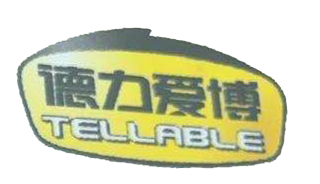Corrosion inhibitor for metal composite board has good corrosion inhibition performance
For corrosion inhibitors in petroleum refining systems, metal composite panels must pass a series of tests before their usability can be determined. The test items include film-forming ability, surface activity, surface solubility, thermal stability, corrosion resistance, and moisture. Ten thousand index, continuous flow device test, etc.
In short, the corrosion inhibitors for metal composite panels used in industry have good corrosion inhibition performance but only meet the most basic requirements. To be practically applied, they should also meet various specific requirements.
Classification of contact inhibitors There are many types of corrosion inhibitors, and the corrosion inhibition mechanism is complex. There is no unified method to reasonably classify them and reflect the relationship between their molecular structure and mechanism of action. For the convenience of research and use, often The angle classifies corrosion inhibitors.
Mechanism of corrosion inhibitor
The mechanism of the protective effect of corrosion inhibitors on metals. It is an extremely important issue in the research of corrosion and anti-corrosion. However, there is no recognized consensus on metal composite plates. At present, there are roughly the following theories: adsorption theory, electrochemical theory , Film formation theory, synergy, etc., in fact, these theories are inherently related to each other. The mechanism of each corrosion inhibitor depends on factors such as the type of corrosion inhibitor, chemical structure, metal type, and environmental conditions. Therefore, metal To correctly understand the corrosion inhibition mechanism of the composite board, it is necessary to fully understand the type of corrosion inhibitor and the performance of the medium. The corrosion process of the metal in the electrolyte solution is composed of two common electrochemical reactions. The two electrochemical reactions are anodes. Reaction and cathode reaction If the corrosion inhibitor can inhibit one or both of the anode and cathode reaction, the corrosion rate can be reduced.
The physical and chemical adsorption mechanism of metal composite board
The adsorption of corrosion inhibitors can be divided into two types: physical adsorption and chemical adsorption. Physical adsorption is caused by electrostatic adsorption and van der Waals force generated by corrosion inhibitor ions and metal surface charges. This adsorption is fast and reversible. For physical adsorption corrosion inhibition Most of the protective films are of the cathodic inhibition type. The main factors that affect the polar group adsorption capacity of the metal composite plate are the polarization performance of the central atom, the induction effect and the common effect of the non-polar group and the substituent, etc.
Chemical adsorption is caused by the formation of coordination bonds between the neutral corrosion inhibitor molecules and the metal composite plate. Chemical adsorption is a bit similar to a sub-chemical reaction, with very obvious adsorption selectivity. The adsorption speed is less than physical adsorption, and it is irreversible. Therefore, Corrosion inhibitors have better aftereffects and are beneficial to corrosion prevention. In addition, chemical adsorption is more susceptible to the influence of the molecular structure of corrosion inhibitors, so it is mostly to inhibit the film formation mechanism of anode-inhibited interface chemical reactions.
In addition to the adsorption and film formation at the interface, corrosion inhibitors can also perform corrosion inhibition through transformation, polymerization (polycondensation) reaction and coordination integration at the interface. Among them, they can be separated from metals or metals.
Contact us
-
No.19 Furong Road, Baihuashan Industrial Zone, Wuyi County, Zhejiang Province
-
zj&deliaibo.com
E-mail:
-
0579-87617218
Fax:
Business hours
open 24 hours
Contact me
copy right:Zhejiang Aibo Composite Material Co., Ltd.

